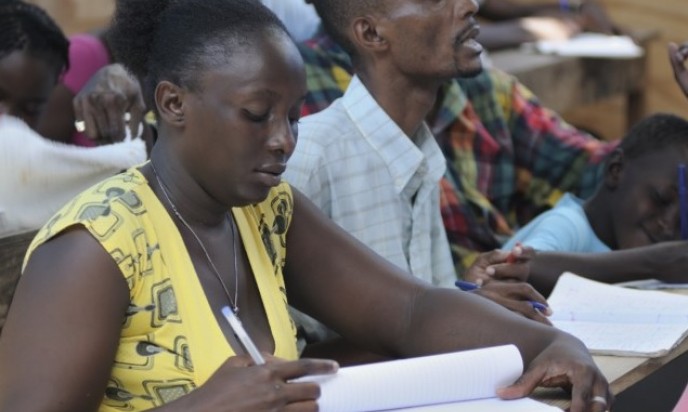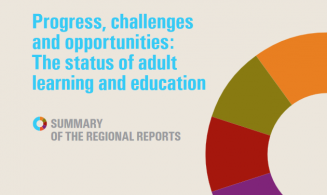

CONFINTEA VII preparations kicked off with first sub-regional consultation event
confintea_news_mainpic.jpg

On 20 January 2021, the UNESCO Beijing Cluster Office and UNESCO Bangkok, in cooperation with the UNESCO Institute for Lifelong Learning (UIL), hosted the first sub-regional preparatory consultation for the seventh International Conference on Adult Education (CONFINTEA VII) online. Representatives from the East Asia sub-region – China, Japan, Mongolia and the Republic of Korea – came together to discuss innovations, challenges and forward-looking strategies to renew policies and action in youth and adult learning and education (ALE). Outcomes will feed into the CONFINTEA VII Asia-Pacific Regional Conference and, ultimately, CONFINTEA VII itself, which will be hosted by Morocco in 2022.
During the consultation, participants presented information about the current state of ALE in their respective countries and shared perspectives for future development, focusing on current issues and challenges, relevant innovations, and acknowledging the impact of the COVID-19 crisis on education.
Representatives of China, for example, recognized the potential of ALE in addressing urban and rural as well as social and economic disparities, promoting poverty alleviation, and responding to the learning needs of an ageing population. Japan, meanwhile, stressed the importance of ALE for upskilling the workforce; Mongolia highlighted the potential to broaden access to literacy opportunities through ALE; and representatives of the Republic of Korea noted possibilities to increase disadvantaged populations’ participation in ALE through new funding mechanisms, such as vouchers for individual learners. Among the key challenges underlined by participants included ensuring visibility and recognition of ALE in the national education law, and comparably moderate-to-low budget allocations for lifelong learning and ALE in government spending plans.
In response to these and other issues, the representatives developed a list of priorities for the further development of ALE in the East Asian sub-region; these include the establishment or refinement of legal frameworks in support of lifelong learning and ALE; recognition of ICT’s role in learning in general and ALE in particular; and the promotion of ALE for economic development and in the world of work. Moreover, participants agreed that it was essential to facilitate ALE development for a number of specific target groups, e.g. older and disadvantaged populations.
Presentations
The Trend of Lifelong Learning in Japan
Koshita Manami, Unit Chief
Lifelong Learning Promotion Division, Education Policy Bureau
Current Situation and Challenges in Adult Education in Mongolia
Ms Oyunaa Purevdorj, Researcher, National Center for Lifelong Education
Lifelong Learning in Korea — a Brief Overview
Ms Min-Seon Park, Programme Specialist, National Institute for Lifelong Education (NILE)
Further sub-regional consultations in the Asia and Pacific region will follow and contribute to the planned CONFINTEA VII regional preparatory conference, which will take place later this year.
About CONFINTEA VII
The Kingdom of Morocco is set to host CONFINTEA VII, which will welcome over 1,000 participants and examine effective adult learning and education policies within a lifelong learning perspective and within the framework of the UN Sustainable Development Goals (SDGs). Participants will jointly work on a new framework for action that will replace the Belém Framework for Action (BFA), adopted at CONFINTEA VI in 2009.
During CONFINTEA VII, UNESCO Member States will be encouraged to enact policies, incentives, regulatory frameworks, and institutional structures and mechanisms to contribute to a human rights culture, social justice, shared values and sustainability. In recognition of continuing advancements in artificial intelligence, special attention will be paid to using ICT to promote access to adult learning and education and inclusion.










